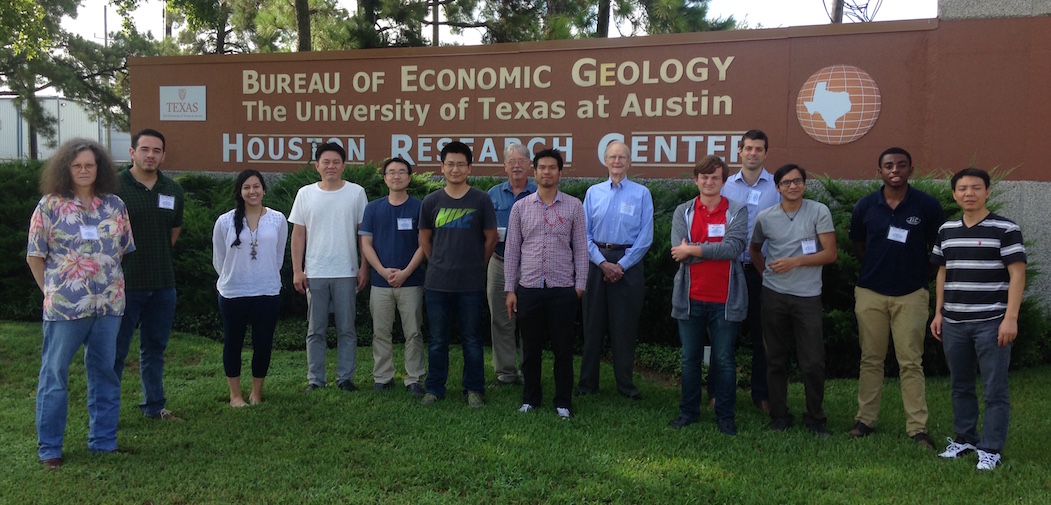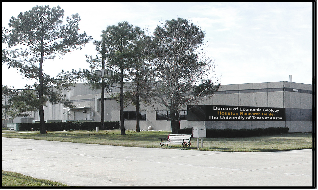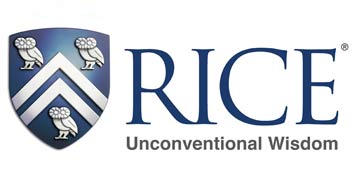Difference between revisions of "SEG 3D Seismic Processing Working Workshop Houston 2016- Land 3D"
(create report for the working workshop. Start by modifying the workshop invitation wiki page) |
(correct link to working workshop invitation) |
||
| Line 6: | Line 6: | ||
[[Working Workshops]] as opposed to "talking workshops" are meetings where the participants work together (possibly divided into pairs or small teams) to develop new software code or to conduct computational experiments addressing a particular problem. In this workshop participants will work in small groups using their own open or proprietary software to process the same 3D land data set. Participants will share input data, processing parameters, and output data so their results can be reproduced in the future by others. | [[Working Workshops]] as opposed to "talking workshops" are meetings where the participants work together (possibly divided into pairs or small teams) to develop new software code or to conduct computational experiments addressing a particular problem. In this workshop participants will work in small groups using their own open or proprietary software to process the same 3D land data set. Participants will share input data, processing parameters, and output data so their results can be reproduced in the future by others. | ||
| − | This workshop [ | + | This workshop [http://www.ahay.org/wiki/SEG_3D_Seismic_Processing_Working_Workshop_Houston_2016-_Land_3D_invitation invited participants] to extent the results of the 2015 SEG 3D Seismic Processing Working Workshop. The workshop report is [http://www.ahay.org/wiki/SEG_3D_Seismic_Processing_Working_Workshop_Houston_2015-_Land_3D here]. Processing templates created in that workshop were incorporated in the reproducible processing flows and new programs in Madagascar. This year we would like to: |
*Use the scripts to develop seismic processing skills. | *Use the scripts to develop seismic processing skills. | ||
*Reproduce and improve these results in other proprietry or open software | *Reproduce and improve these results in other proprietry or open software | ||
| Line 13: | Line 13: | ||
Participants made final "lightning talk" presentations describing the programs, parameters, and data (input and output) in sufficient detail so the results can be reproduced after the workshop. The presentations, description of programs and parameters used, input data, and output data are archived and available for training and research. | Participants made final "lightning talk" presentations describing the programs, parameters, and data (input and output) in sufficient detail so the results can be reproduced after the workshop. The presentations, description of programs and parameters used, input data, and output data are archived and available for training and research. | ||
| − | Many participants started with existing reproducible Madagascar scripts from [https://drive.google.com/file/d/0BzlWqJrRotPyVlJwRllSYmZjS0E/view?usp=sharing this link]. Participants brought aptops with the software they will use to process the seismic data during the workshop. We learned by comparing results from various software systems and archiving a set of processing templates. It was an opportunity for academics to pick up some of the "art" of seismic processing from seasoned industry processing staff. It was also an opportunity for industry to illustrate interesting problems in land processing and "set up" example scripts for university researchers to validate their theory. | + | Many participants started with existing reproducible Madagascar scripts from [https://drive.google.com/file/d/0BzlWqJrRotPyVlJwRllSYmZjS0E/view?usp=sharing this link]. Participants brought aptops with the software they will use to process the seismic data during the workshop. We learned by comparing results from various software systems and archiving a set of processing templates. It was an opportunity for academics to pick up some of the "art" of seismic processing from seasoned industry processing staff. It was also an opportunity for industry to illustrate interesting problems in land processing and "set up" example scripts for university researchers to validate their theory. |
==Agenda== | ==Agenda== | ||
Revision as of 09:59, 19 January 2017
Contents
2016 Working Workshop Attendees
Overview
Working Workshops as opposed to "talking workshops" are meetings where the participants work together (possibly divided into pairs or small teams) to develop new software code or to conduct computational experiments addressing a particular problem. In this workshop participants will work in small groups using their own open or proprietary software to process the same 3D land data set. Participants will share input data, processing parameters, and output data so their results can be reproduced in the future by others.
This workshop invited participants to extent the results of the 2015 SEG 3D Seismic Processing Working Workshop. The workshop report is here. Processing templates created in that workshop were incorporated in the reproducible processing flows and new programs in Madagascar. This year we would like to:
- Use the scripts to develop seismic processing skills.
- Reproduce and improve these results in other proprietry or open software
- Extend Madagascar, Seismic Unix, or other open software packages.
Participants made final "lightning talk" presentations describing the programs, parameters, and data (input and output) in sufficient detail so the results can be reproduced after the workshop. The presentations, description of programs and parameters used, input data, and output data are archived and available for training and research.
Many participants started with existing reproducible Madagascar scripts from this link. Participants brought aptops with the software they will use to process the seismic data during the workshop. We learned by comparing results from various software systems and archiving a set of processing templates. It was an opportunity for academics to pick up some of the "art" of seismic processing from seasoned industry processing staff. It was also an opportunity for industry to illustrate interesting problems in land processing and "set up" example scripts for university researchers to validate their theory.
Agenda
- Wednesday August 17, 2016 (optional informal tutorials)
- Informal one-on-one tutorials to:
- Install/configure Linux on your computer
- Install Seismic Unix on your computer
- Install Madagascar on your computer.
- Get a copy of the Teapot Dome data on your computer.
- 8:30-9:00 Light breakfast
- 9:00-12:00 Work together installing/configuring/loading
- 12:00-1:00 Lunch Break (on your own)
- 1:00-5:00 Work together installing/configuring/loading
- Informal one-on-one tutorials to:
- Thursday August 18, 2016 (working workshop starts)
- 8:30-9:00 Light breakfast
- 9:00-10:00 Self Introductions, project proposals, and team formations
- 10:00-12:00 Breakout into work teams
- 12:00-1:00 Lunch (provided)
- 1:00-2:00 Group discussion
- 2:00-5:30 Breakout into work teams
- Friday August 19, 2016
- 8:30-9:00 Light breakfast, reform teams.
- 9:00-12:00 Breakout into work teams
- 12:00-1:00 Lunch (provided)
- 1:00-2:00 Group discussion
- 2:00-5:30 Breakout into work teams
- 6:00-8:00 Dinner
- Saturday August 20, 2016
- 8:30-9:00 Light breakfast, reform teams.
- 9:00-10:00 Breakout into work teams
- 10:00-12:00 Final presentations
Location
The University of Texas at Austin
Bureau of Economic Geology
Houston Research Center
Address
11611 West Little York Rd
Houston, Texas 77041, USA
Driving directions
Supporting Organizations
Department of Computational and Applied Mathematics
Rice University





